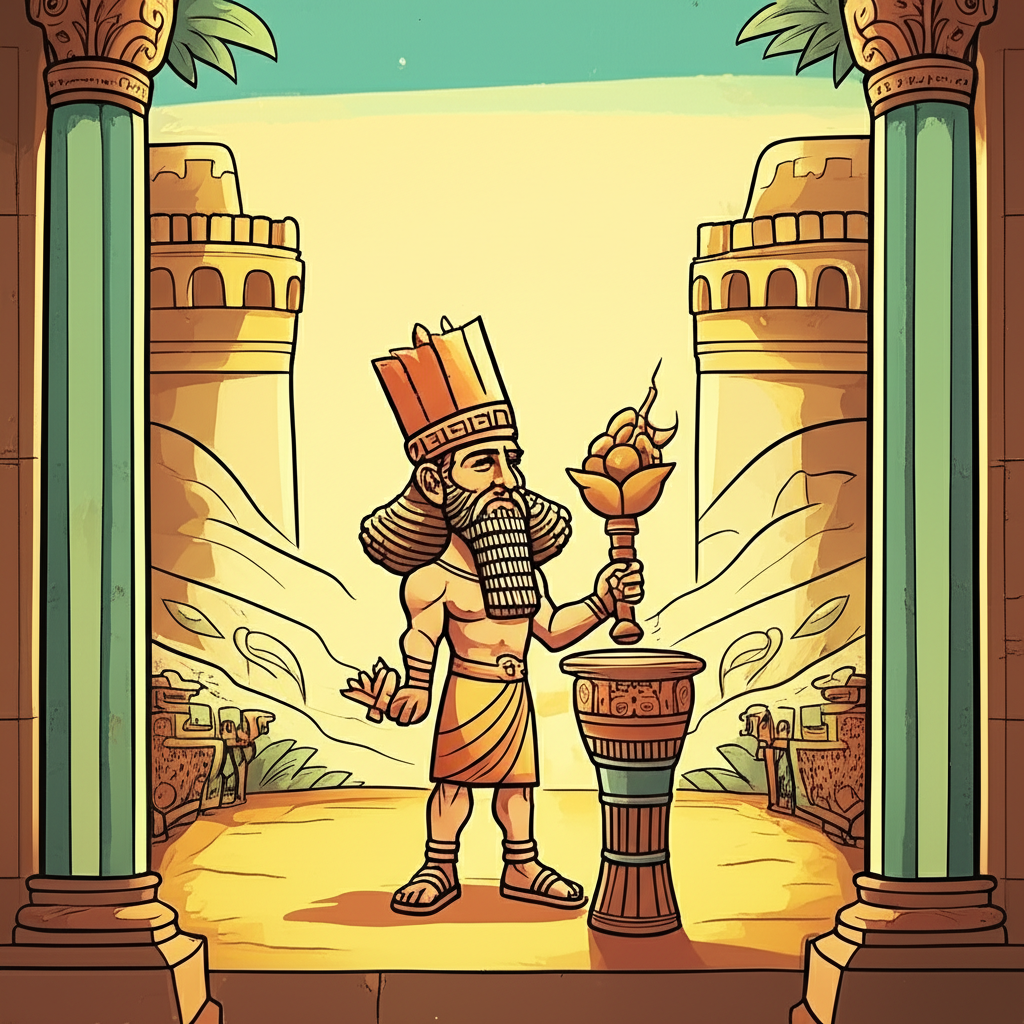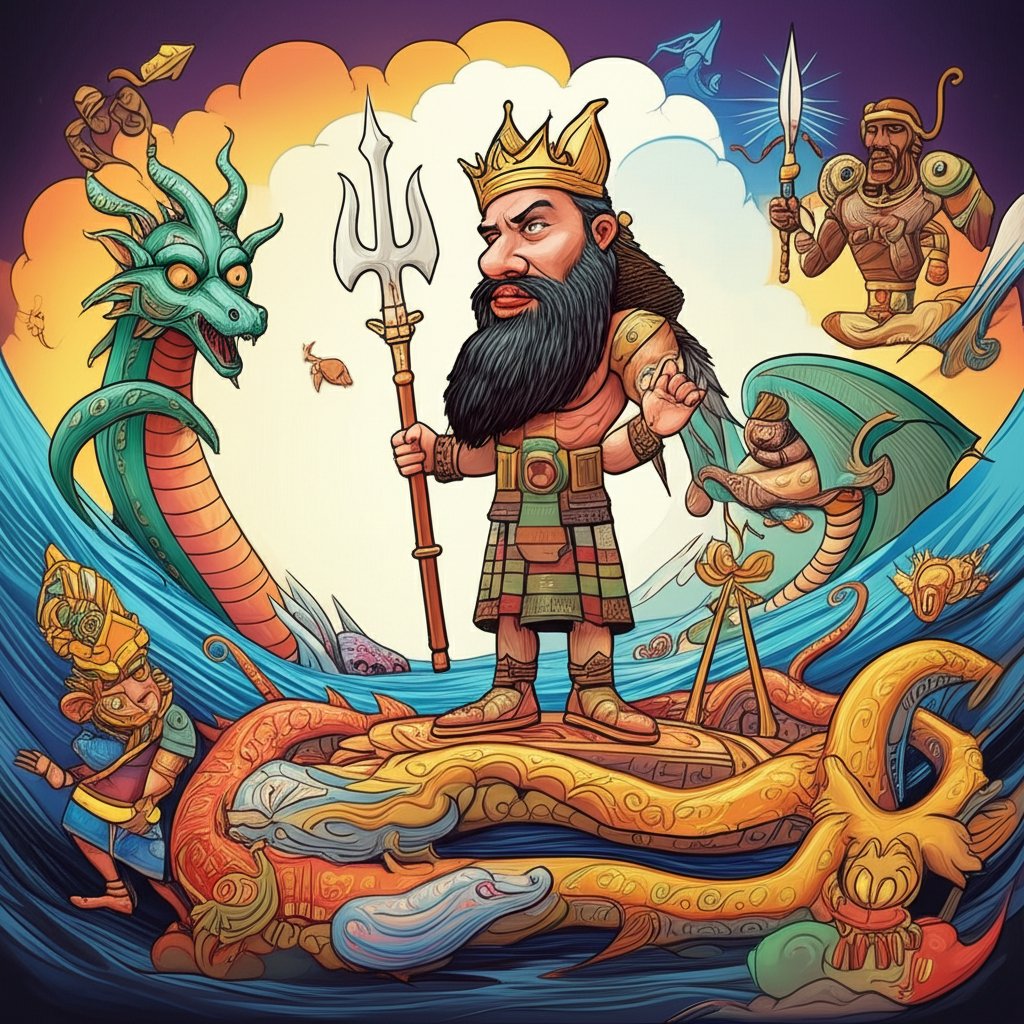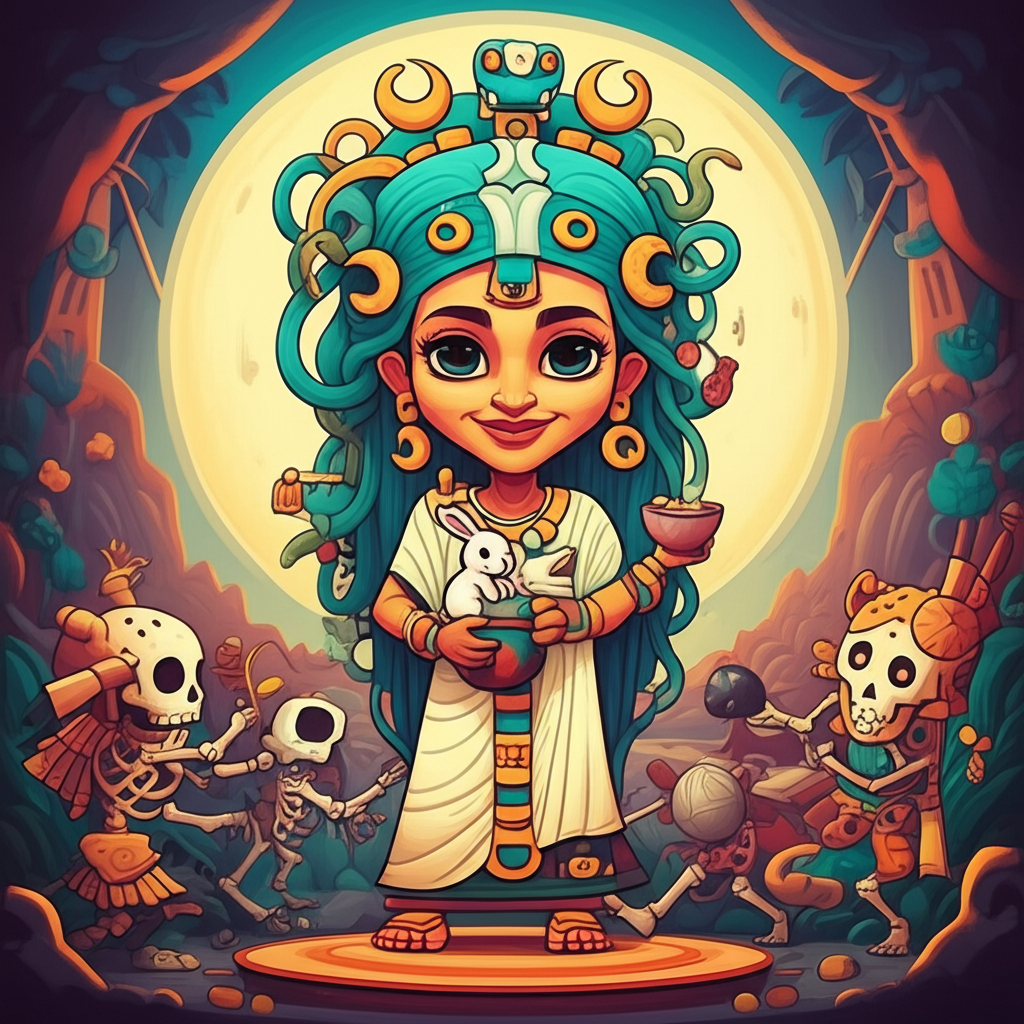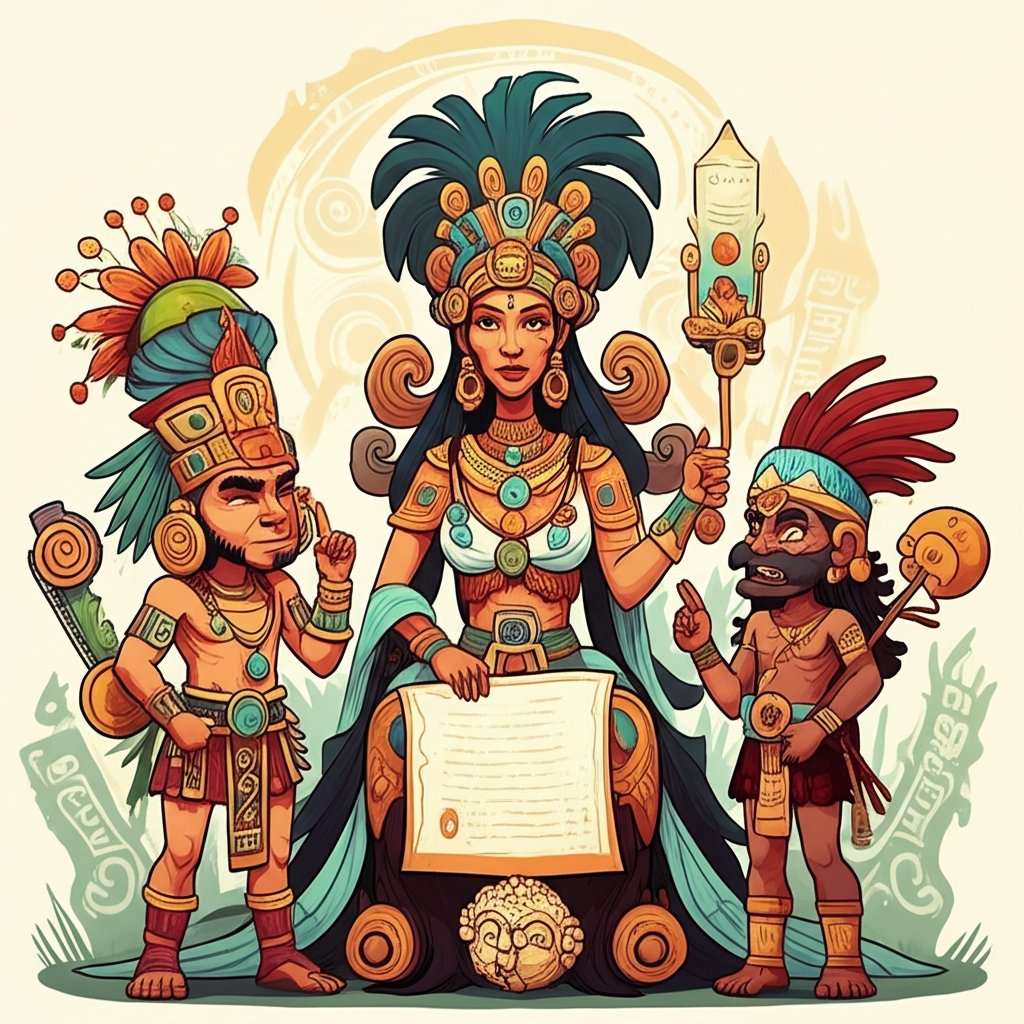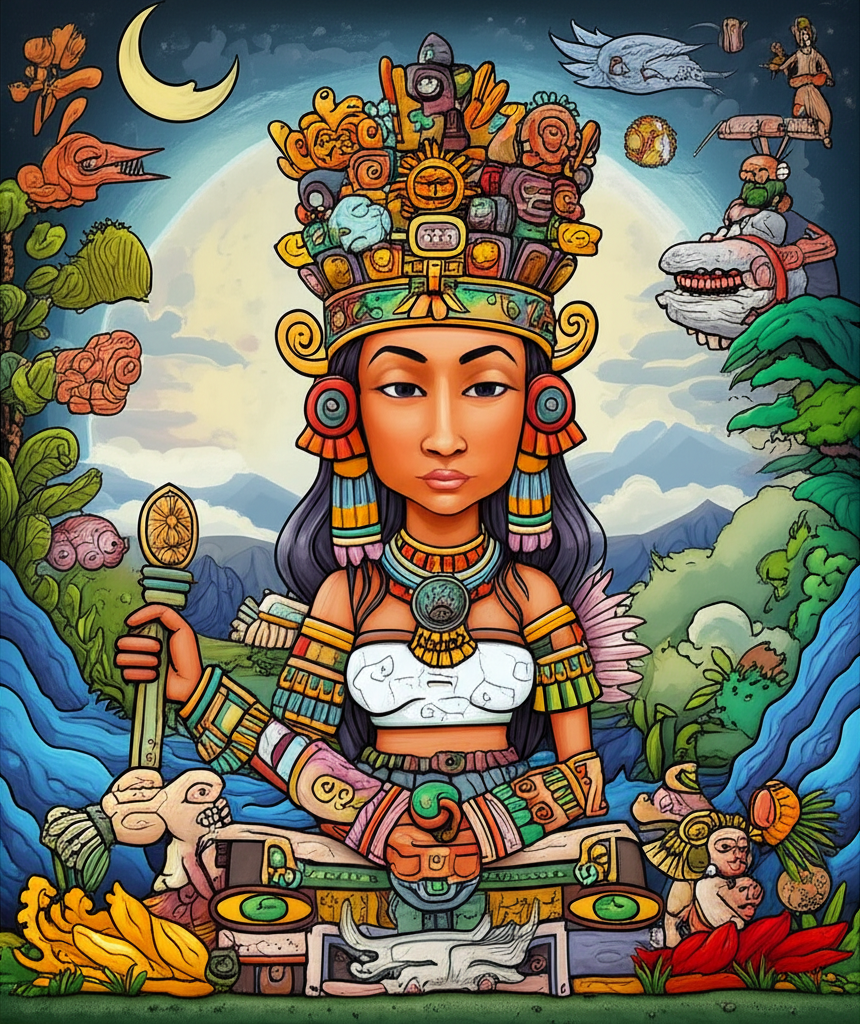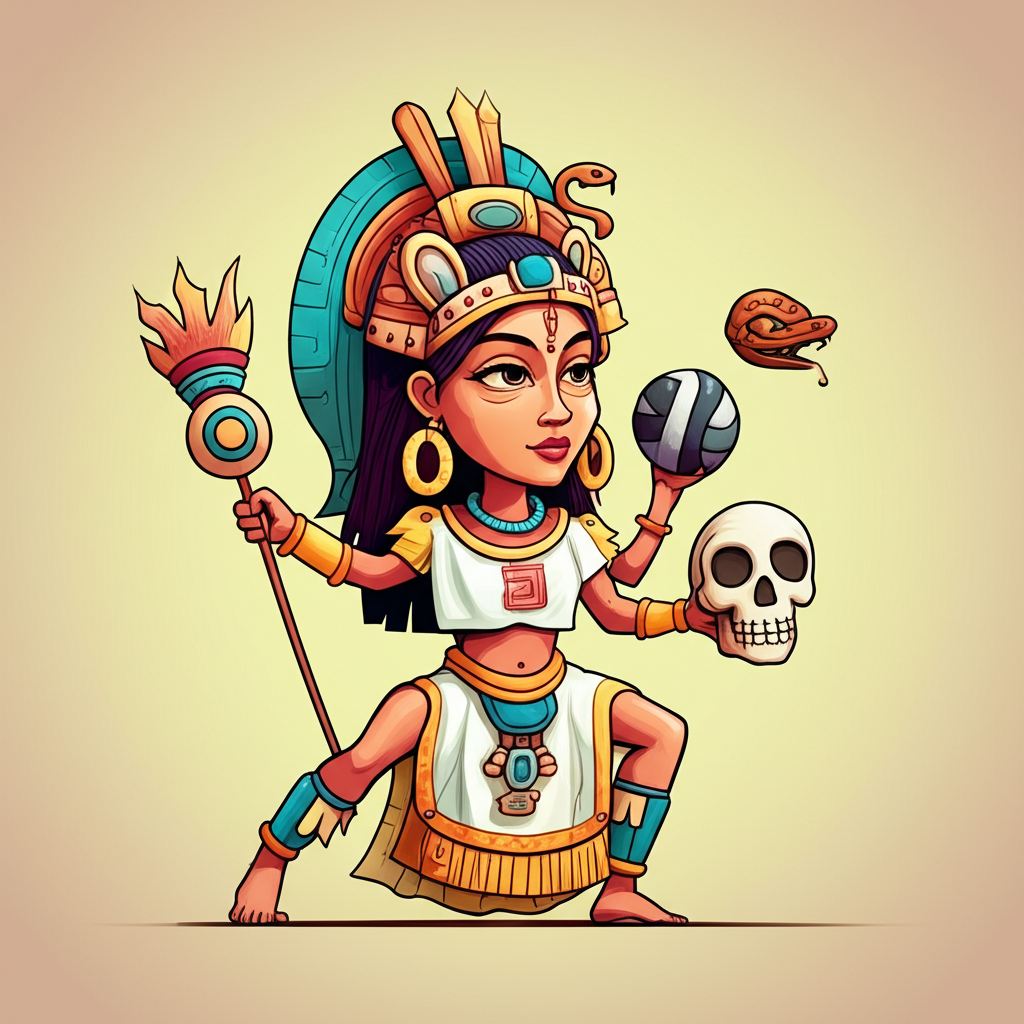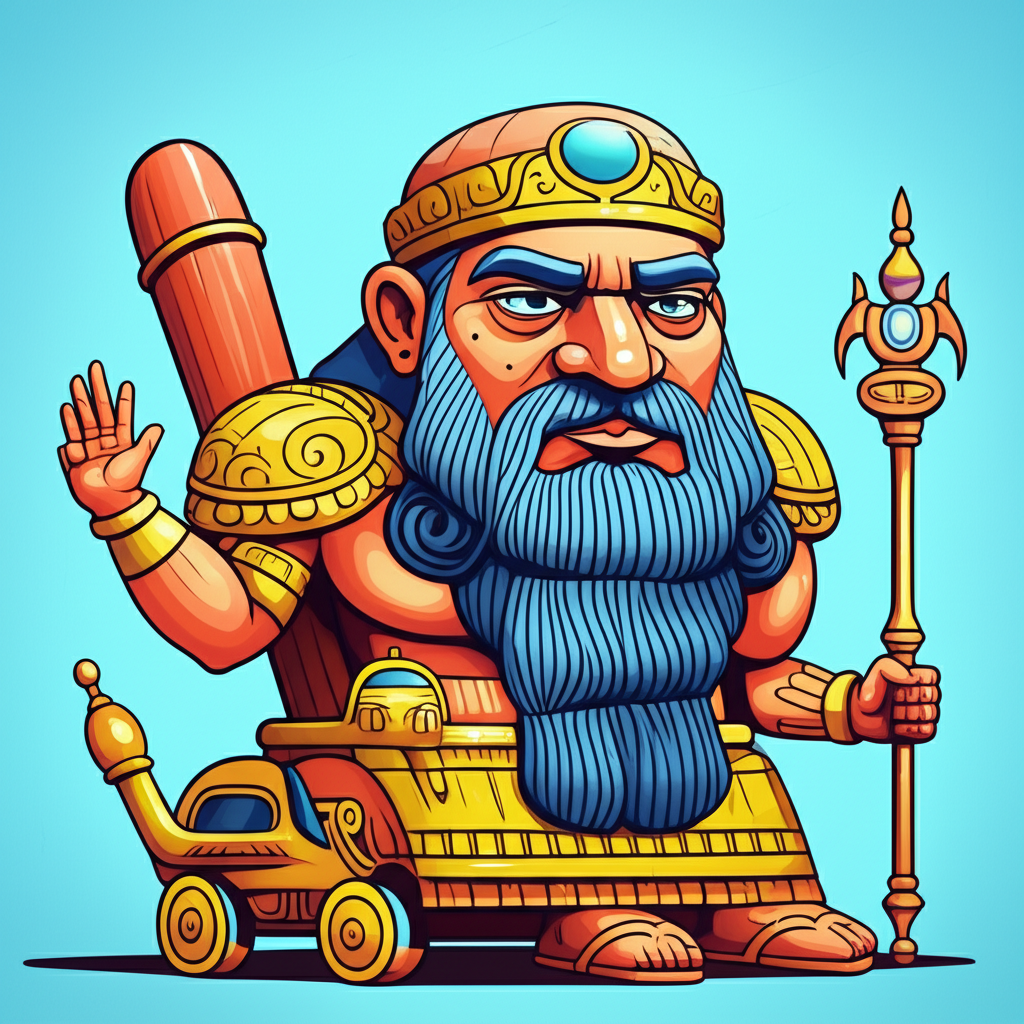
In the sun-baked cradle of civilization, where the mighty Tigris and Euphrates rivers carved their life-giving paths through the arid lands of ancient Mesopotamia, stories were woven like the finest tapestries. These were not mere tales; they were the very fabric of understanding for a people grappling with the vastness of existence, the capriciousness of nature, and the enduring mystery of life and death. Among the most profound of these ancient narratives is the Epic of Gilgamesh, a journey that delves into the heart of humanity, its desires, its fears, and its inevitable mortality. This epic, originating from the Sumerian city-states of Mesopotamia, predates many other foundational myths, offering a window into the worldview of a society that sought meaning in the powerful forces surrounding them.
The cultural milieu in which the Epic of Gilgamesh flourished was one of burgeoning city-states, complex social hierarchies, and a deep reverence for the divine. The Mesopotamians lived in a world where the gods were perceived as active participants in human affairs, their will often expressed through the unpredictable floods of the rivers, the scorching heat of the sun, or the devastating storms. Their understanding of the cosmos was animistic, attributing spirit and agency to natural phenomena, celestial bodies, and even the very earth beneath their feet. They built monumental ziggurats, stepped pyramids that reached towards the heavens, as a testament to their awe and their desire to bridge the gap between the mortal and the divine. In this environment, tales of heroes, gods, and monstrous beings served as both entertainment and a means to explore fundamental questions about the human condition.
Central to Gilgamesh’s transformative journey is the character of Enkidu. The Epic describes Enkidu not as a man in the conventional sense, but as a primal being, a wild man forged from the wilderness itself. He is depicted as possessing immense strength, his body covered in shaggy hair, living amongst the beasts of the plains, roaming with lions and gazelles. His eyes are the eyes of the wild, untamed and reflecting the raw power of nature. Enkidu’s existence is one of instinct and uninhibited freedom, a stark contrast to the civilized, yet increasingly tyrannical, rule of Gilgamesh in Uruk. Enkidu’s symbolic attributes lie in his connection to the untamed natural world, representing the primal forces that exist beyond the confines of human society and order. He embodies a raw, unfiltered existence, a state of being that is both awe-inspiring and, for the city-dwellers, somewhat terrifying.
The narrative begins with Gilgamesh, the mighty king of Uruk, a man of two-thirds god and one-third man, whose strength and beauty were unmatched. Yet, his power had curdled into arrogance and tyranny. He oppressed his people, his desires unchecked, his reign a source of fear rather than inspiration. The gods, hearing the lamentations of Uruk, decide to fashion a counterpoint to Gilgamesh, a rival who could challenge his dominance and perhaps temper his spirit. They create Enkidu, a being of the wild, a creature of immense power who lives a life of primal innocence.
The turning point arrives when a hunter, disturbed by Enkidu’s interference with his traps, journeys to Uruk to seek the king’s aid. Gilgamesh, recognizing the challenge, sends Shamhat, a temple prostitute, to “civilize” Enkidu. Shamhat, a figure of both spiritual and sensual power, seduces Enkidu, revealing to him the ways of human society. After a week spent with her, Enkidu’s connection to the wild begins to wane. He becomes aware of human customs, his understanding of the world expands, and he feels a longing for a different kind of existence.
Led by Shamhat to Uruk, Enkidu confronts Gilgamesh in a titanic struggle. Their battle shakes the very foundations of the city, a testament to their immense power. However, their fight does not end in death; instead, it culminates in a profound respect and an immediate, unbreakable bond of friendship. Gilgamesh, for the first time, finds a peer, someone who can match his strength and challenge his will. Enkidu, in turn, finds purpose and a connection to humanity. Their friendship becomes the cornerstone of Gilgamesh’s transformation.
Together, the two heroes embark on a series of adventures, most notably their quest to the Cedar Forest to defeat the monstrous Humbaba, the guardian of the sacred trees. This journey is fraught with peril, testing their courage and their bond. They face fearsome creatures and navigate treacherous landscapes, their combined might and growing understanding of each other proving instrumental in their victories. Their triumph over Humbaba, however, angers the gods, particularly the goddess Ishtar, who, spurned by Gilgamesh, unleashes the Bull of Heaven upon Uruk. Again, Gilgamesh and Enkidu prove victorious, killing the celestial beast.
The gods, however, decree that one of the heroes must pay for their transgressions. Enkidu, as the one who was once wild and now a part of the civilized world, is chosen to die. His death is a devastating blow to Gilgamesh. He mourns Enkidu with an intensity that shakes him to his core, his grief transforming his arrogance into a profound fear of his own mortality. Witnessing the decay of Enkidu’s body, Gilgamesh realizes the ultimate fate that awaits all mortals.
Driven by this newfound terror, Gilgamesh embarks on a desperate quest for immortality. He journeys to the ends of the earth, seeking Utnapishtim, the only mortal granted eternal life by the gods. His arduous journey is filled with trials and encounters, including a perilous crossing of the Waters of Death and a conversation with Siduri, the ale-wife, who advises him to embrace the joys of his mortal life. Finally, he reaches Utnapishtim, who recounts the story of the Great Flood and reveals that immortality is not for humanity. Utnapishtim offers Gilgamesh a test to prove his worthiness for eternal life – to stay awake for seven days and seven nights. Gilgamesh, exhausted by his journey, falls asleep immediately, proving his inherent human frailty.
Though he fails to achieve immortality, Gilgamesh learns a profound lesson. He realizes that while he cannot escape death, he can find meaning in his life through his deeds, his relationships, and the legacy he leaves behind. He returns to Uruk, no longer a tyrant, but a wise and humbled king, his understanding of life and death forever changed.
The story of Gilgamesh and Enkidu, and their struggle with mortality, resonated deeply with the ancient Mesopotamians. Enkidu’s transformation from a wild, natural being to a companion of a king symbolized the complex relationship between humanity and the natural world. His wildness represented the untamed forces of nature, while his eventual integration into society spoke to the human desire for connection and belonging. Their friendship was a powerful allegory for the strength found in unity and mutual respect, essential for the survival and prosperity of their burgeoning city-states. The epic also grappled with fundamental human anxieties: the fear of death, the yearning for immortality, and the search for meaning in a seemingly capricious universe. The gods, as depicted in the epic, were powerful, often capricious beings whose actions influenced the lives of mortals, reflecting the Mesopotamian understanding of a world governed by divine will.
In the modern world, the Epic of Gilgamesh continues to captivate and inspire. It is studied in literature, mythology, and cultural studies programs worldwide, offering invaluable insights into the ancient Near East. Its themes of friendship, loss, the search for meaning, and the confrontation with mortality remain universally relevant. Gilgamesh and Enkidu have appeared in various forms of media, from academic analyses to fictional adaptations, video games, and even metaphorical representations in art and film. Their story serves as a foundational text in the study of human storytelling and the enduring questions that have preoccupied humanity for millennia.
It is crucial to reiterate that the Epic of Gilgamesh is a traditional story, a product of ancient imagination and cultural expression, not a historical account or a divine revelation. As Muslims, we recognize that only Allah (God) is the true Creator and Sustainer of all existence, the ultimate source of all power and wisdom. The stories of ancient peoples, while rich in cultural significance and offering profound insights into human thought and experience, are understood within this framework.
The enduring appeal of Gilgamesh and Enkidu lies not in any claim of divine power, but in their ability to reflect the shared human experience of striving, loving, grieving, and ultimately, accepting our place within the grand tapestry of existence. Their tale is a testament to the power of storytelling to explore the deepest aspects of the human condition, a tradition that continues to connect us to the vibrant cultural heritage of our ancestors, reminding us of the boundless capacity of human imagination.
